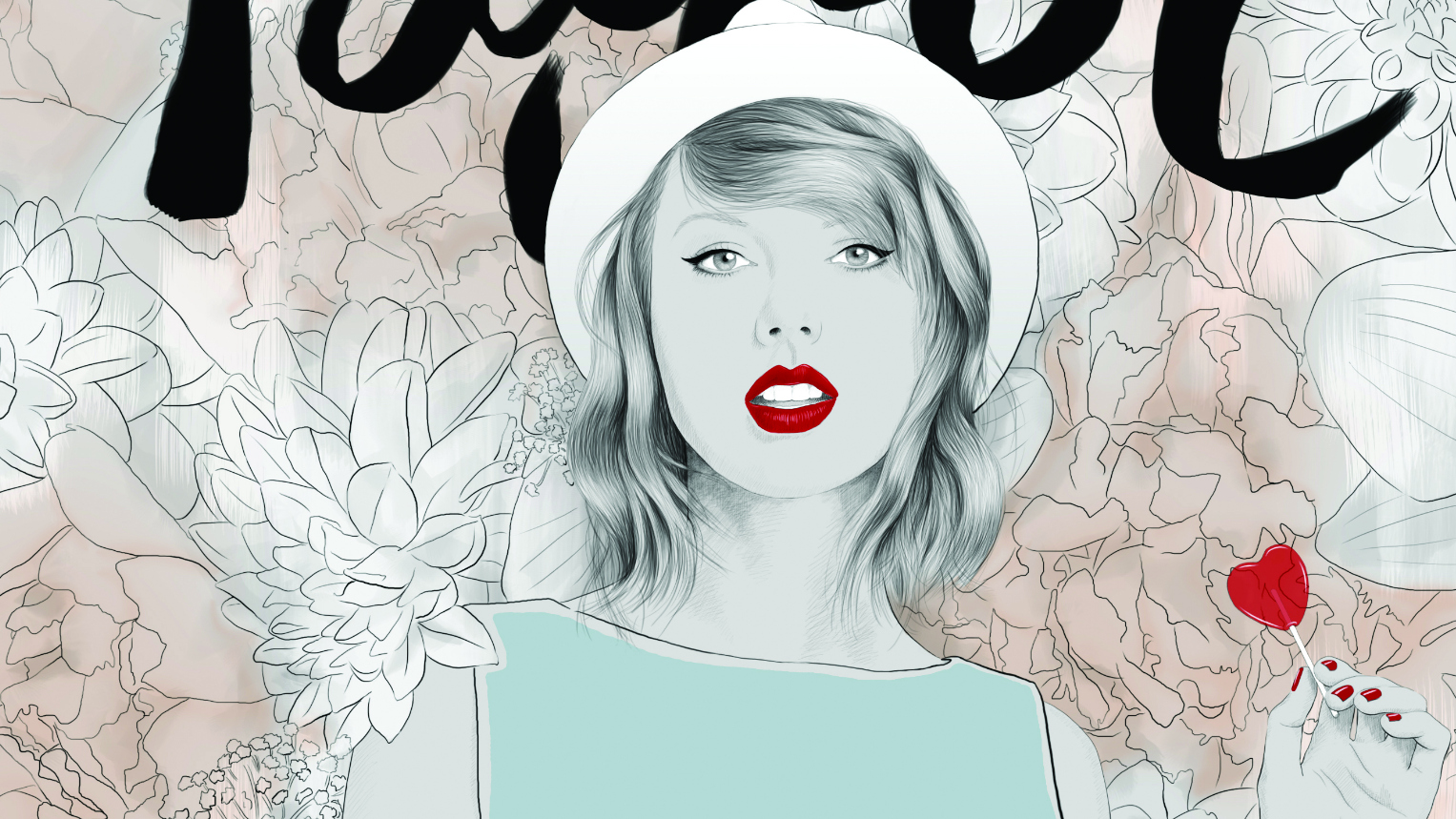
February 19, 2016, by Guest Blogger
‘We never go out of style, never go out of style’: On Taylor Swift and Repetition
At the recent Grammy Awards for 2016, Taylor Swift not only picked up the Best Music Video award for her hit ‘Bad Blood’ (featuring Kendrick Lamar), her album 1989 was also awarded the Album of the Year as well as the Best Pop Vocal Album. Whilst Swift had previously won the Album of the Year in 2010 with her second studio album Fearless (alongside three other Grammys that year), this is the first time she has won the Best Pop Vocal Album—after all, 1989, as Swift herself notes, is her first ‘officially documented pop album’.
With 2016 marking the 10th anniversary of Taylor Swift’s music career, we can see how Swift’s music has evolved significantly from her early signature pop-country ballads such as her debut single ‘Tim McGraw’ (2006) and early breakthrough hit ‘Love Story’ (2008) into her recent pop hits such as ‘Blank Space’ and ‘Style’. One of the notable developments of Swift’s music is her increasingly conscious deployment of repetition found in her turn to ‘pop’ music in her most recent album, 1989 (2014). For instance, in her most recent single ‘Out of the Woods’, Swift sings the phrase ‘out of the woods’ no less than 34 times and being ‘in the clear’ 24 times—as counted by a website which presented Swift as the ‘Queen Of Repetition’. Additionally, Swift’s first single from 1989, ‘Shake It Off’ has also been analysed by academics as exemplary of musical repetition.
However, Swift’s deployment of repetition not only can be found in her musical arrangements (as in 1989’s pop hits), but also in the themes and lyrics of her songs. As Jem Bloomfield from UoN’s School of English has pointed out, Swift’s single from her last album Red, ‘We Are Never Ever Getting Back Together’ (2012) is structured ‘around the idea of repetition’ and presents a ‘sense of being unable to escape of a repeating pattern.’ Furthermore, in addition to the inclusio structures often found in her early works like the aforementioned ‘Tim McGraw’ and ‘Love Story’—where the first lines of the lyrics are repeated as the concluding lines, with her country music influences, Swift’s signature ballads are often written in auto-biographical narratives which recall past memories and romantic experiences.
Swift’s auto-biographical sentimental ‘recollection’ of the past has however often been described by many as ‘resentful’, whiney’, ‘self-pitying’ or indeed ‘nostalgic’ as the narrative often appears to dwell in the past. In an upcoming lecture, drawing on French philosopher Gilles Deleuze’s explicitly affirmative conception of repetition, I shall argue Swift’s music is not negative and backward-looking but in fact positive and forward-looking. Building on the (Kierkegaardian) philosophical distinction between recollection and repetition as well as analysing Swift’s lyrics, the lecture will seek to demonstrate how Swift’s music presents and affirms an active and dynamic account of love that radically differs from the ‘whiney’ and resentful impression of romantic love which people often associate with Swift and her song-writing.
Blog post by King-Ho Leung, postgraduate research student in the School of Humanities.
Image credit: Vickie Sit
Come along to King-Ho’s Popular Culture lecture on Wednesday 24 February 5.30pm, C04 Physics Building, University Park. The lecture is free and open to all.
No comments yet, fill out a comment to be the first

Leave a Reply